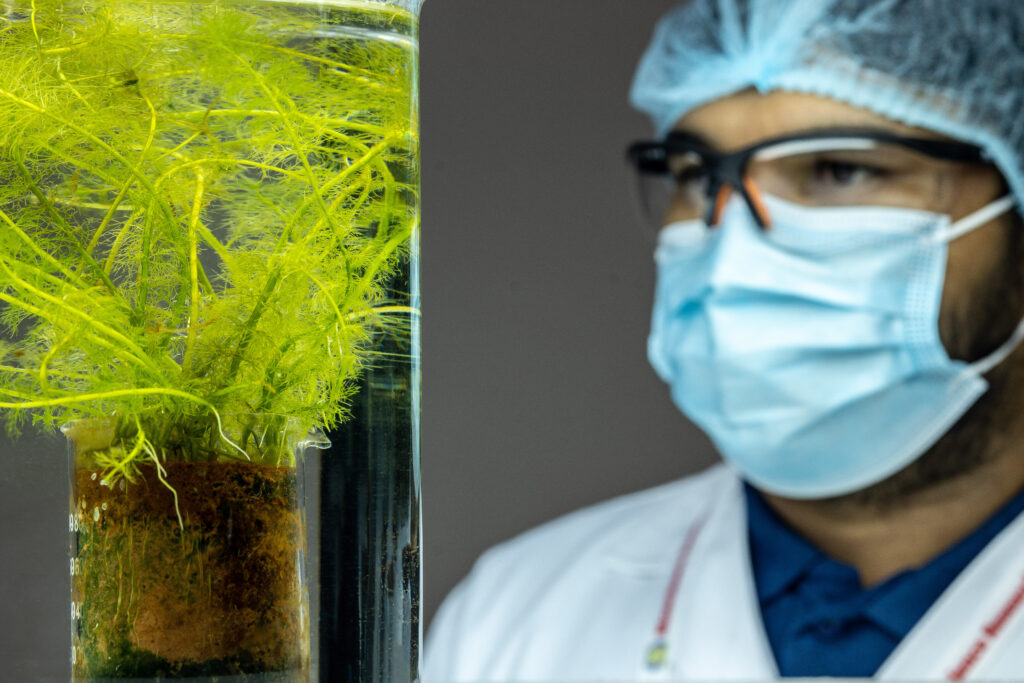Agrochemicals
Innovative Solutions for Agriculture
At BRF, we are committed to advancing agrochemical research through cutting-edge technologies and innovative approaches. Our Agrochemical Research Division focuses specifically on the development of new and effective crop protection including Biological products to support sustainable agriculture practices.
We are proud to have worked on the first nano fertiliser registration in India, highlighting our expertise in innovative and sustainable agricultural solutions. Additionally, we hold accreditations such as Good Laboratory Practice (GLP) certification and other relevant certifications, which ensure that our reports are accepted worldwide and by all leading regulatory agencies in countries such as the USA, UK, Japan, China, Brazil, and India. In fact, our reports are accepted by the Central Insecticides Board and Registration Committee (CIBRC) in India.
At BRF, we also provide constant regulatory support to our clients, ensuring that their products meet the necessary regulatory requirements for each country they wish to distribute in. Our team of experts has extensive knowledge of global regulations and works closely with clients to ensure that their products are compliant with all necessary regulations.
Our team of experienced researchers, chemists, and biologists work collaboratively in our state-of-the-art laboratory to design, test, and refine agrochemical compounds that can protect crops from pests and diseases while minimizing environmental impact. We employ rigorous testing protocols to ensure the safety and efficacy of our products.
Through our research, we aim to make a positive impact on global agriculture by providing farmers with effective and sustainable solutions to protect their crops and increase yields. We are committed to advancing the agrochemical industry with our innovative research and to working closely with our partners to bring our products to market.
We invite you to explore our website to learn more about our research, our team, and our mission. Please feel free to contact us for any type of agrochemical research studies. Thank you for your interest in BRF’s Agrochemical Research Division.
BRF’s Agrochemical Research Division is dedicated to developing effective crop protection products that support sustainable agriculture practices. With GLP certification and other relevant certifications, our reports are accepted worldwide and by leading regulatory agencies. We provide constant regulatory support to our clients, ensuring their products meet necessary regulations. Our team of experts work collaboratively in our state-of-the-art laboratory to design, test, and refine agrochemical compounds, employing rigorous testing protocols to ensure product safety and efficacy. We aim to make a positive impact on global agriculture by providing farmers with effective and sustainable solutions. Contact us for agrochemical research studies.
Our Lab


Overview of services
- Aquatic toxicity testing (fish, invertebrates, algae)
- Terrestrial toxicity testing (earthworms, bees, etc.)
- Plant toxicity testing
- Sediment toxicity testing
- Bioaccumulation studies
- Environmental risk assessment
- Pesticide residue analysis in crops and soil
- Residue analysis in water and sediment
- Multi-residue analysis methods
- Analytical method development and validation
- Residue decline studies
- Dislodgeable foliar residue studies
- Degradation and persistence studies
- Soil adsorption and desorption studies
- Leaching and mobility studies
- Volatility and volatilization studies
- Photodegradation studies
- Transformation product identification
- Crop protection efficacy testing
- Weed control efficacy testing
- Pest and disease control efficacy testing
- Crop tolerance studies
- Resistance management studies
- Application method optimization
- Metabolism pathway identification
- Metabolite profiling and identification
- Metabolism kinetics studies
- Metabolism in crops and target organisms
- Crop metabolism residue studies
- Metabolism in livestock and wildlife
- Crop tolerance studies
- Phytotoxicity screening
- Crop safety assessment
- Seed germination and seedling emergence studies
- Plant growth inhibition studies
- Plant hormone balance studies
